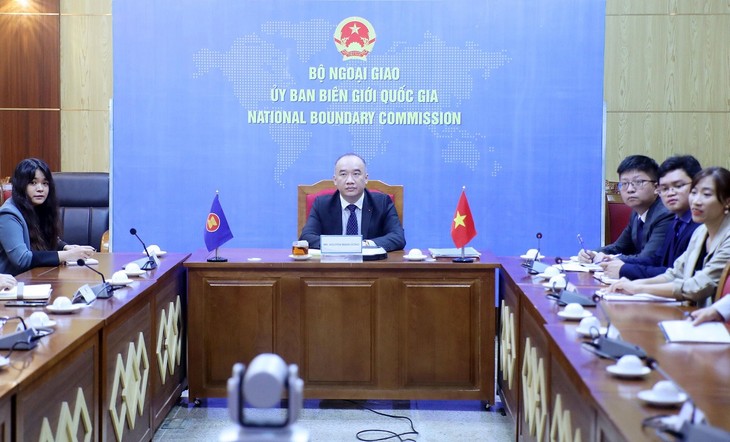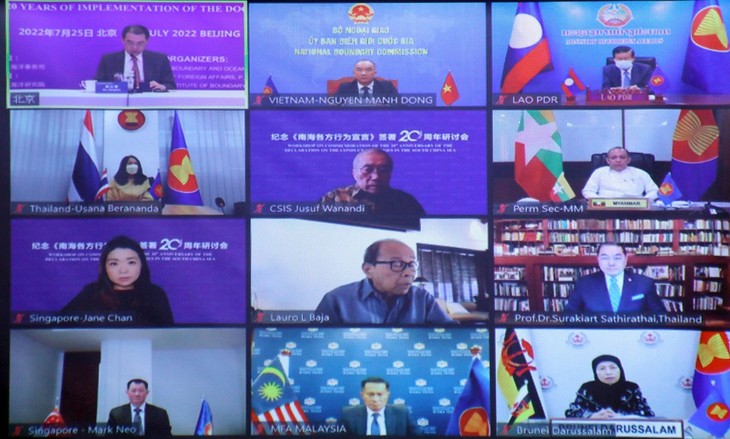(VOVWORLD) - The Declaration of the Conduct of Parties in the East Sea (DOC) has contributed to promoting peace, trust, and cooperation between ASEAN and China, former Vietnamese Minister of Foreign Affairs Nguyen Dy Nien told a conference held by the Chinese Ministry of Foreign Affairs on Monday.
 Vice Chairman of the National Boundary Commission Nguyen Manh Dong attends the virtual event. (Photo credit: Ministry of Foreign Affairs) Vice Chairman of the National Boundary Commission Nguyen Manh Dong attends the virtual event. (Photo credit: Ministry of Foreign Affairs)
|
Organized to mark the 20th anniversary of the DOC, the online event brought together incumbent and former Foreign Ministers of ASEAN countries, including some who signed the DOC in 2002.
The Vietnamese delegation included former Minister of Foreign Affairs Nguyen Dy Nien and Vice Chairman of the National Boundary Commission of the Ministry of Foreign Affairs Nguyen Manh Dong.
The event’s three sessions discussed the historic moment of the signing, the results and prospects of DOC implementation, and progress made toward a Code of Conduct in the East Sea (COC).
 A screen shot of the virtual conference to mark the 20th anniversary of the DOC (2002-2022) (Photo credit: Ministry of Foreign Affairs) A screen shot of the virtual conference to mark the 20th anniversary of the DOC (2002-2022) (Photo credit: Ministry of Foreign Affairs)
|
Chinese State Councilor and Foreign Minister Wang Yi urged continued peace and cooperation at sea and an early finalization of a practical and effective COC in line with international law, including the 1982 UN Convention on the Law of the Sea (UNCLOS 1982), to make the East Sea a sea of peace, friendship, and cooperation.
Mr. Nien said the DOC was the first important document signed between ASEAN and a partner country. It reaffirms respect, he said, and commitment to the freedom of navigation and aviation in the East Sea and to peacefully settling disputes in accordance with international law, including the 1982 UNCLOS.
Incumbent ASEAN Foreign Ministers said ASEAN and China must continue to fully implement the DOC and provide a conducive environment for talks on the COC.
Their predecessors recalled the necessity that created the DOC two decades ago and emphasized its crucial importance in maintaining regional peace, security, stability, cooperation, and prosperity.
They encouraged all parties to practice self-restraint, avoid any actions that could complicate the situation, and respect the rights and interests of other parties in accordance with international law, particularly the 1982 UNCLOS.